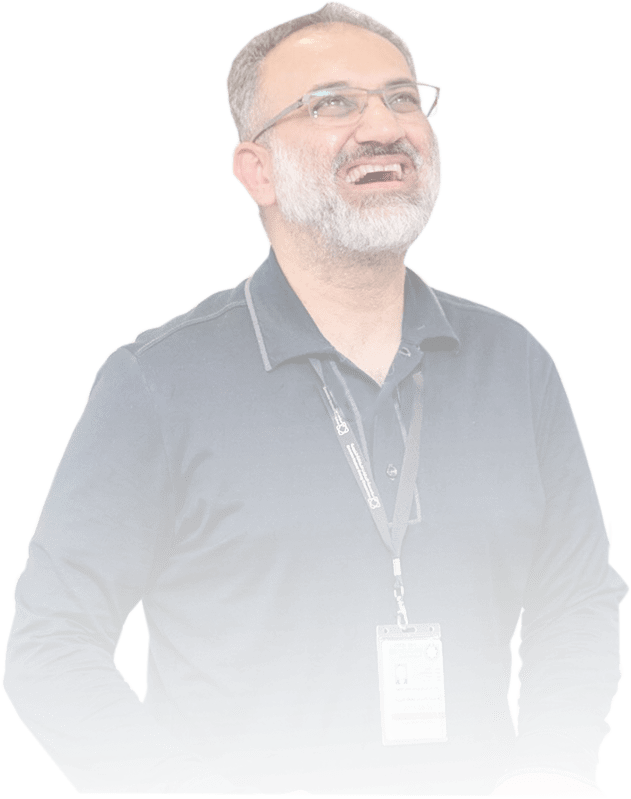

Projects normally involve clients, consultants and contractors, who get together temporarily to produce a unique product. If clients desire, projects could be both product- and knowledge-based investments. As described below, the way organisations and teams interact makes a significant difference to the client’s ROI (return on investment).
Knowledge-based project teams
CONSERVATIVE CONSUMERS invest in mega projects by adopting the most effective governance and procurement processes. They measure success by the number of bids received, celebrate awarding the best techno-economical offers and perform strict oversight. This is operationally commendable.
On the other hand, AMBITIOUS CONSUMERS invest in the mega knowledge offered by their mega projects to transform themselves into smarter consumers, capable of managing mega projects and celebrate profits. This is strategically commendable.
However, the energy market offers two types of consultancy services, Expert Consultancy and Process Consultancy. While CONSERVATIVE CONSUMERS opt for Expert Consultancy, AMBITIOUS CONSUMERS opt for Process Consultancy. Both consultancies offer valuable services, but only Process Consultancy provides valuable knowledge.
Expert Consultancy teams work independently of their clients and their task normally ends by submitting the agreed deliverables and performing oversight.
Clients often review the deliverables and perform oversight. This approach could result in project delays and the duplication of efforts, while offering some minor and unstructured transfer of knowledge to client’s personnel.
Meanwhile, the Process Consultancy teams are a mixture of consultant and client personell. The experienced consultant gets to interview client’s staff, selects the best, forms the teams and leads them. Such teams produce all deliverables and perform oversight. This approach supports timely completion of the project, best utilisation of resources, while offering significant and structured transfer of knowledge to the client personal, enabling clients to gain consultancy knowledge, which is a step towards becoming smarter consumers (contractors and developers).
Dnata and DP World are examples of AMBITIOUS CONSUMERS successfully transformed from being local service organisations to leading international consultants offering recognised Management Services to sophisticated clients abroad. This is a tremendous, strategic and commendable investment in knowledge.
In 2006, I had the honour of visiting PGESCo to encounter the successful transformation story of this Egyptian EPC and EPCM contractor, currently active in MENA region. It all started in the late ’90s, when the Egyptian electricity sector decided to become smarter by transforming into an AMBITIOUS CONSUMER and investing in its human capital.
Their smart tender for partnership was awarded to a reputable American construction company to mark the beginning of a win-win business model. A team of Egyptian pioneers was shortlisted and posted in the United States for few months to undergo a systematic and structured process of knowledge and skills transfer.
The certified team returned to inaugurate PGESCo and work under the supervision of their US-based partner. Over the years, the level of supervision progressively dropped and PGESCo is now operating independently. Ever since, PGESCo has successfully executed most of the Egyptian energy projects. This is a tremendous, strategic and commendable investment in knowledge. I could not be more proud.
Knowledge-based project organisations
Organisations are designed to give a required output. Hence, there is no such a thing as a typical organisation that all must fit into. An organisation that targets TIME is different than an organisation that targets COST or QUALITY, and vice versa. Similarly, knowledge-based organisations need to be different, as described below.
A typical energy project organisation consists mainly of several structured core and non-core teams, such as Project Management, Supply Chain, Engineering, Construction, Commissioning, Quality Control, Quality Assurance and Human Resources.
Such mature organisation structures work well for mature companies with experienced staff that have successfully conducted several projects of the same type. Only experienced companies can effectively manage the inherent and significant interfaces associated with such matured organisation structures.
My advice to all AMBITIOUS CONSUMERS and those engaging in a new field is to start with an organisation consisting of teams structured to support learning, such as Project Management, Civil, Mechanical, Electrical, Instrumentation & Control, Quality Control, Quality Assurance and Human Resources.
Technical teams shall be broken down into systems and equipment promoting specialisation and enhancing familiarity with the technical requirements. Each technical team shall be accountable for the Supply Chain, Engineering, Construction and Commissioning of its systems and equipment. Such organisations are designed to help produce Subject Matter Experts (SMEs) and complete projects.
I can’t stress enough on the importance of minimising and managing interfaces effectively, because 90 per cent of the time, balls are dropped when tossing them around rather than when they are secured by individuals. Therefore, the adopted organisation structure must, to the extent possible, minimise interfaces and allow for their effective management.
I know that change could be uncomfortable and thinking out of the box is scary, but without doing these things, we don’t stand a chance against the global competition. The future is for consultants, developers and producers, not CONSERVATIVE CONSUMERS.
It’s time to transform by investing in the Mega Knowledge of Mega Projects.


